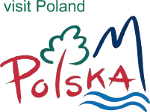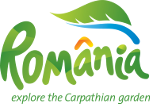OFF-ROAD EXPERIENCE:
Depend the event, car can be a basic SUV with or without a low ratio gearbox, for example a Toyota Rav4 or Land Rover Freelander. Any experience in 4×4 vehicles is welcome. It is understood that each owner of his/her 4×4 knows how to use the four-wheel-drive system (difflock/high & low ratio gears). Taking into account the characteristics of routes, we can safely say that all of our tours broadens the skills of each driver.
But don’t worry, it is a family holiday, not an extreme rally. Drivers of modified 4×4’s will of course already be well aware of their vehicle’s handling and capabilities.
DRIVER:
Because each day we spend a certain amount of miles on the road – or ‘off it’ even – it is advisable not to have just one driver. Although not compulsory, we strongly recommend that at least two people in the car possess a full driving license.
HOW TO GET THERE AND BACK:
There is no problem with travelling. The European motorway network extends well beyond Central Europe.
Please also remember about speed limits on motorways and tolls (Vignette) for motorways.
ARRIVAL OF THE START:
Crews always arrive up to 11.00pm at the hotel. Crews arriving earlier will be checked-in and given all the materials and instructions associated with the event.
Other crews will be able to check-in on the next day from 8.00am to 9.00am.
If you have any problems with getting the start in a specified period (failure of the car, late for the ferry, etc.) the crew is required to inform the organiser.
Before the start, at 9:30am crew briefing takes place together with a meeting relating to the rules and regulations, routes and events. Next each crew must produce documents related to the vehicle (MOT, Insurance, Green card – if applicable) and driver’s license. None of these documents will be excluded from participation in the event without reimbursement (See Rules).
After this meeting the crews are released on route.
ROADSIDE ASSISTANCE
For legal reasons the organiser is not able to provide full assistance. The organiser however undertakes to provide, if possible, medical (first aid) and mechanical assistance until the arrival of the appropriate emergency services.
It is therefore recommended that participants have in place full personal health insurance and roadside assistance for their vehicle and passengers (medical insurance cover, European breakdown cover).
In the case of buying extra insurance, please remember you are embarking on a simple ”motor touring holiday” of Eastern Europe, not a race, rally, safari, off-road expedition or anything else of that nature. To say otherwise will prove be extremely negative, resulting ultimately in insurance companies refusing cover. Unfortunately, these are the ridgid guidelines insurance companies enforce.
When asked where you will going on your ”motor touring holiday”, you must specify a list of countries to visit:-
France, Belgium, Holland, Germany, Slovakia, Austria, Czech Republic, Hungary, Romani, Poland.
All these countries belong to Europe Union so the same rules are applied as all over Europe.
FIRST AID:
This is not essential, but it is recommended that at least one person in your group are trained to provide basic medical first aid. As organisers we will provide assistance to the best of our abilities.
IMPORTANT: Regardless of whether you have private health care or not, when travelling in the EU and outside the community (eg Switzerland), it is important to have a European Charter Health Insurance (ehiz). This card gives you the opportunity to receive the discounted price or for free medication and medical assistance in a foreign country. A very easy process, simply register online at https://www.ehic.org.uk/Internet/home.do or by calling the application line EHIZ on 0845 606 2030
NAVIGATION:
On the first day at the briefing, each group will receive a road-book. It is also worth purchasing an additional topographic map in Transylvania. Each vehicle must be equipped with a GPS receiver. This combination will allow for error-free navigation throughout Transylvania. The road-book will show some time points with coordinates to GPS (by Garmin), so a GPS is very helpful.
Any of these points and maps for Garmin receivers are available at the Download section.
Access to download section will described in a letter confirming your booking deposit.
ROAD-BOOK:
Each crew receives a wipeable road-book in which the entire route is described. Sample page from the road-book is available on our website HERE
Navigation is the driving distance between the corresponding points, with features being described in the boxes. This road-book was made with the assistance of professional equipment. Using GPS units and tripmeters in the car may cause slight errors in the distances. This has been included in the planning and preparation the route. Providing the road-book is read correctly then the whole route can be driven without the use of additional maps.
CAR – PREPARATION:
You now know that you’ll be driving more than 3,000 miles in total, therefore in order to return home under your own steam, the next step is preparing your vehicle properly. Failure to do so can see you returning on a low-loader … not good! Preparation is everything, then all you will have to concern yourself is perhaps a couple of paintwork scratches. Although unlikely, the possibility of ‘battle damage’ is ever-present whilst off-roading, but this is nothing compared to mechanical breakdown.
We realise that everyone will want to prepare their car in their own way, so here are a few basic tips/reminders:-
- Check all fluids in your car – radiator, engine oil, gearbox oil, axle levels, washer fluid.
- Check all leaks and spills that you have.
- If you have winch, check its operation.
- Check towing points, they must be securely attached to the chassis.
- Check all lights, carry spare bulbs and fuses.
- Check the condition of your battery. Often overlooked, it is the heart of your engine.
- Remember to take some spare parts. Anyone already familiar with your car will know what has been repaired recently and what can potentially go wrong. Basic items include wheel bearings, CV joints, belts (alternator/air conditioning/etc.). Although not essential, if you can afford to take a spare water pump and alternator with you, then even better. If they are not used on the tour, inevitably they will be used one day! The rest is in the lap of the Gods.
EQUIPMENT :
The Eastern Europe is a area with a typical continental climate. The country runs through the middle of a mountain range (the Carpathians). These mountains form a natural boundary between the warm and humid Mediterranean climate in Europe, so you must prepare for the conditions. The August weather in Poland and Romania is nice. Temperatures during the day reach 18 to 29 degrees, so the sun can be quite intense. Headgear is a good idea, as are shorts. T-shirts are essential. However, when reaching 1600 metres above sea level, a fleece or even a windcheater are the norm to keep out the mountain winds.
Weather varies within minutes there. There are also places where the snow still lies, thus some practical comfortable shoes are advised. You can ride all the way with sneakers, others prefer tracking boots (especially good in the rainy season). Others will even wear sandals from start to finish, it’s completely up to you. Just be aware that conditions can change within minutes.
Now for camping equipment – let’s start with sleep. Some of the participants have bed constructions in their cars while others have roof tents. The majority tend to use ordinary ground tents. As to the first two solutions, we do have any restrictions. For ground tents, it is worth remembering to keep them simple. Be aware that we will be pitching in fields, campsites or on mountaintops. We must have the ability to make a camp quickly. Also please try and keep tents on the small side. Erecting a 6-berth tent every other night for just 2 persons is madness, so keep tents at a sensible size.
 A good quality sleeping bag is a must. Regardless of whether I sleep in a tent, a roof tent or in the car (unless I have a Webasto heating), it is worth buying a sleeping bag that will maintain 5-15 degrees. The worst thing ever is a cold night’s sleep, so again be aware that in the high mountains of Transylvania, the temperatures can drop to around 5 degrees at night. Unfortunately in the Carpathians, although it can be hot and beautiful during the day, temperatures can plummet at night. A secondary blanket or similar is a good idea, this is your choice entirely; stay warm!
A good quality sleeping bag is a must. Regardless of whether I sleep in a tent, a roof tent or in the car (unless I have a Webasto heating), it is worth buying a sleeping bag that will maintain 5-15 degrees. The worst thing ever is a cold night’s sleep, so again be aware that in the high mountains of Transylvania, the temperatures can drop to around 5 degrees at night. Unfortunately in the Carpathians, although it can be hot and beautiful during the day, temperatures can plummet at night. A secondary blanket or similar is a good idea, this is your choice entirely; stay warm!
Cookers, heaters etc. A basic gas stove that takes cylinders can be bought in Asda or Tesco’s for around the £10 mark. Heaters are also available should you think they are necessary, although these are often taken but rarely used.
Each client will receive detailed departure information as to what equipment is required and where you can buy it.
If you have any questions about the equipment, luggage or clothes that you would like to take with you, then simply contact us. We will provide as much help as possible.









